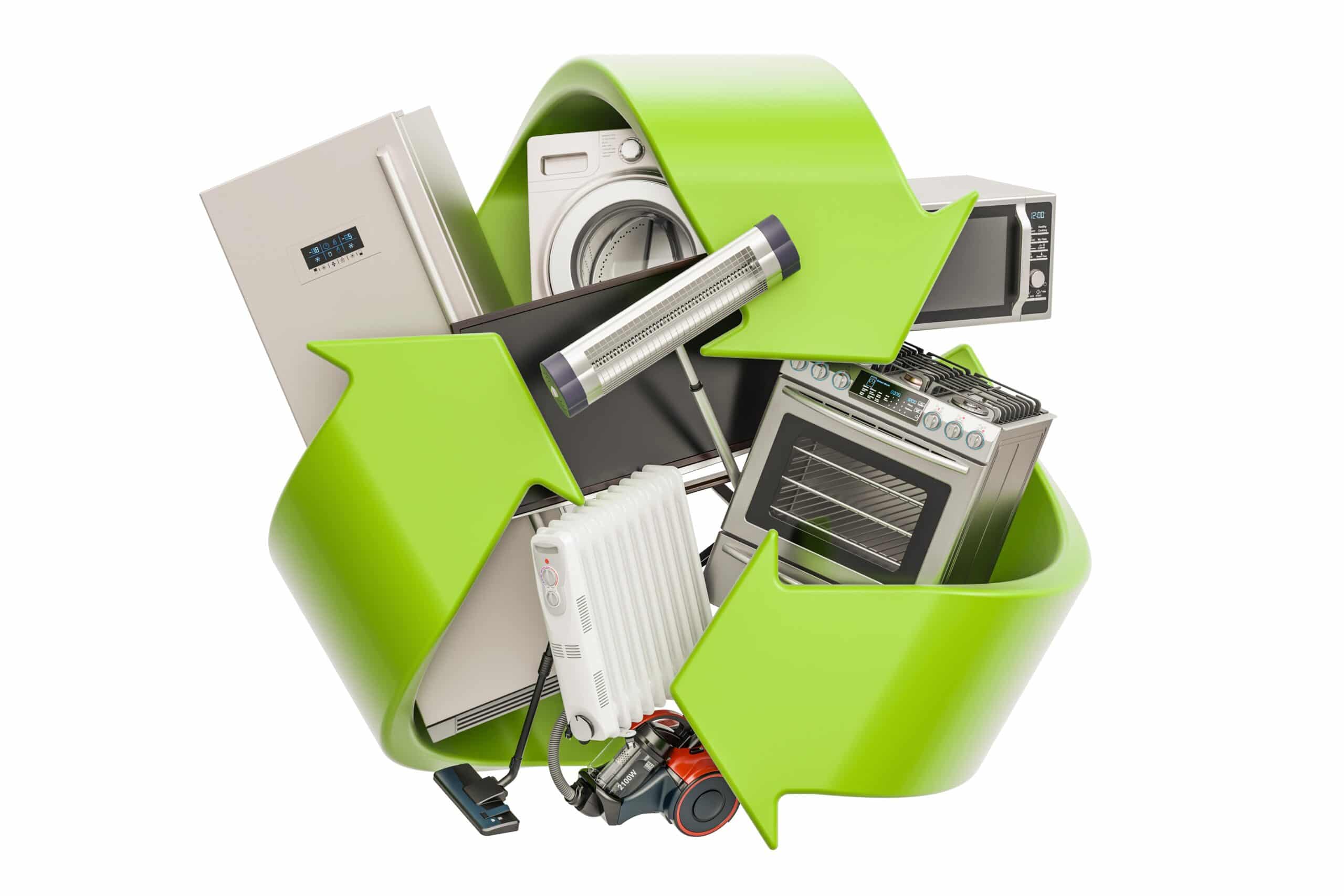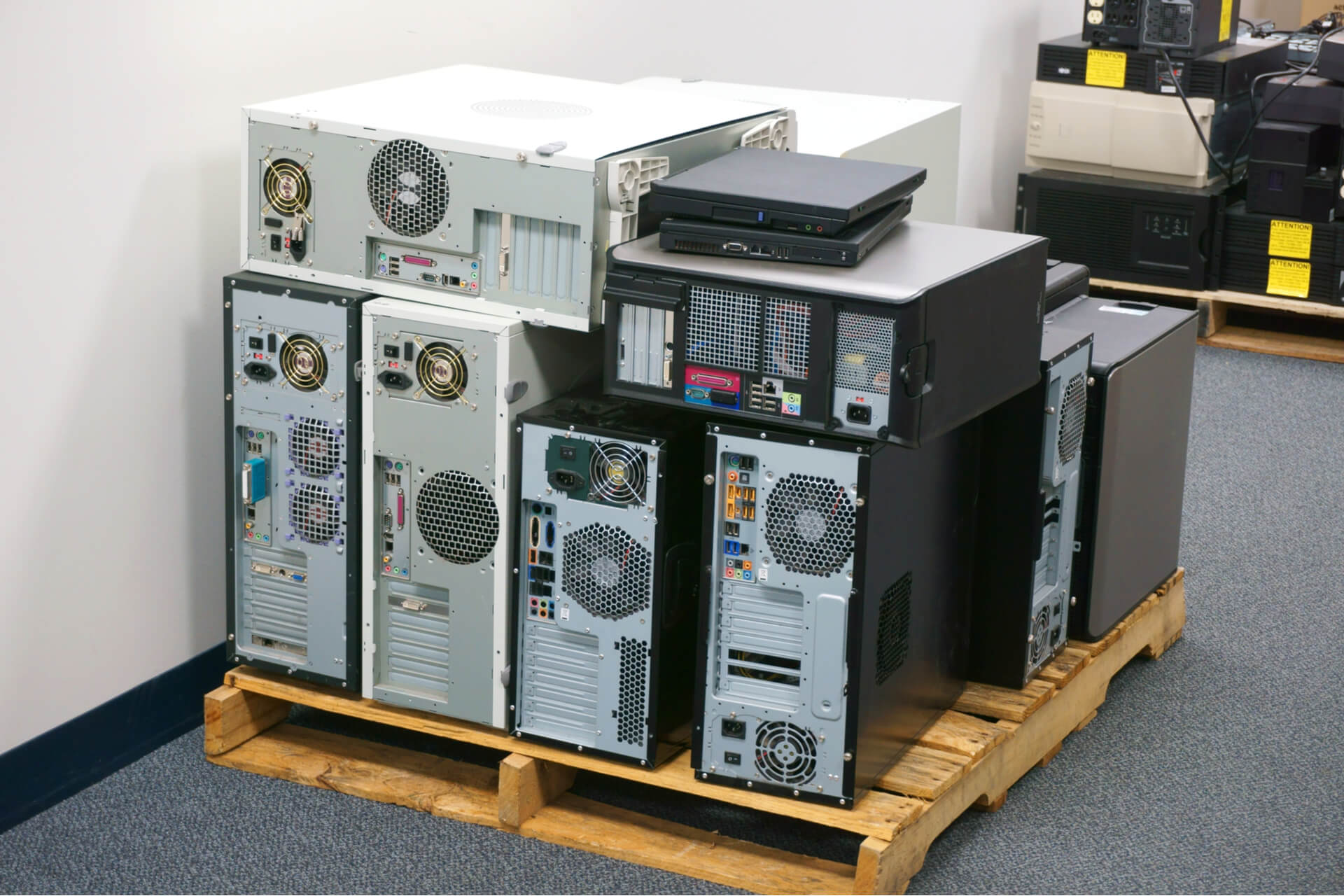Environmental Stewardship: The Significance of Computer Recycling
Environmental Stewardship: The Significance of Computer Recycling
Blog Article
Lasting IT Solutions: Trustworthy Computer System Recycling Services
In light of this, the requirement for trustworthy computer reusing services has never ever been even more vital. In this discussion, we will discover the ecological impact of e-waste, the advantages of liable computer recycling, how to pick a credible recycling service, the reusing process for computers and digital gadgets, and the role of federal government guidelines in e-waste management.
The Ecological Effect of E-Waste
The improper disposal of digital waste, frequently referred to as e-waste, has significant ecological implications. E-waste describes disposed of digital gadgets such as tvs, computers, and smart devices (computer recycling). These tools include hazardous products such as lead, mercury, cadmium, and brominated fire retardants, which can be harmful to both human health and wellness and the environment if not effectively managed
When e-waste is poorly gotten rid of, it often ends up in land fills or is incinerated, releasing poisonous substances into the water, dirt, and air. The release of these dangerous products can infect groundwater, pollute the air, and contribute to dirt destruction, posing severe wellness risks to nearby neighborhoods and ecosystems.
Additionally, the inappropriate disposal of e-waste additionally adds to the deficiency of natural deposits. computer recycling. If appropriately reused, several digital tools contain important metals like gold, silver, and copper that can be recuperated and reused. Nevertheless, when e-waste is not recycled, these important resources are lost, and the demand for new basic materials increases, leading to increased mining activities and more ecological destruction.
To mitigate the ecological effect of e-waste, appropriate recycling and disposal techniques should be employed. This consists of the liable collection, taking apart, and recycling of electronic tools to recuperate valuable materials and ensure the secure monitoring of harmful compounds. Executing effective e-waste monitoring practices is critical to shield the atmosphere, conserve sources, and promote a lasting future.

Benefits of Responsible Computer System Recycling
Appropriately recycling computer systems uses a wide range of advantages, consisting of environmental conservation and resource conservation. Liable computer reusing not only helps protect against electronic waste from finishing up in garbage dumps, but it additionally decreases the need for basic materials and energy in the manufacturing of new gadgets.
One of the most substantial benefits of liable computer recycling is the conservation of the environment. When digital waste is improperly thrown away, it can release harmful compounds such as lead, mercury, and cadmium right into the dirt and water, positioning a hazard to environments and human health. By recycling computer systems, these hazardous products can be securely removed and taken care of, reducing the threat of pollution.
One more benefit is source conservation. Computers consist of valuable materials like gold, silver, light weight aluminum, and copper, which can be recuperated and recycled via reusing processes. By extracting and reusing these products, the need for extracting brand-new sources is reduced, conserving natural sources and minimizing the ecological influence of source removal.
Furthermore, accountable computer recycling assists to minimize energy usage. Manufacturing new computers requires a considerable amount of energy, from the extraction of basic materials to the setting up process. By reusing computer systems and recycling their parts, the energy-intensive production procedure can be prevented, resulting in a reduction in greenhouse gas discharges and a more lasting usage of energy resources.
Exactly How to Select a Trustworthy Computer Recycling Service
When selecting a computer reusing solution, it is necessary to think about a few essential elements to ensure that you choose a trustworthy and dependable company. First of all, it is important to verify if the reusing solution adheres to appropriate environmental regulations and techniques. A reliable provider will certainly have accreditations and accreditations that show their commitment to liable recycling. Search websites for certifications such as R2 (Accountable Recycling) or e-Stewards, which ensure that the recycling process fulfills stringent standards for ecological security and data protection. Secondly, examine if the solution uses protected information destruction. Data security is an important concern when reusing computer systems, as sensitive details stored on old gadgets can be at risk to theft or abuse. A reliable recycling service must have secure data devastation methods in place, such as information cleaning or physical destruction of storage gadgets. In addition, think about the solution's performance history and reputation. Search for testimonials or testimonials from previous clients to determine their degree of customer fulfillment and integrity. Take into consideration the solution's transparency and responsibility. A reliable service provider ought to have the ability to supply thorough details about their recycling procedure, consisting of just how they handle hazardous materials and guarantee appropriate disposal. By thinking about these aspects, you can select a computer recycling service that is ethical, reputable, and eco accountable.
The Recycling Refine for Computers and Electronic Gadgets
To guarantee accountable disposal and minimize ecological effect, understanding the reusing process for computers and digital devices is necessary when choosing a trustworthy recycling solution. The recycling procedure for these gadgets typically entails a number of phases.
First of all, the devices are gathered from people, services, or drop-off points. This collection process might include transport logistics and protected taking care of to secure the delicate data had within the gadgets. As soon as collected, the gadgets are arranged based on their kind, such as desktops, laptop computers, or smart devices.
After sorting, the tools undertake additional hints an extensive information devastation procedure to guarantee that any kind of sensitive or individual details is completely eliminated. This action is important to shield the personal privacy and safety and security of individuals and companies. Data damage approaches might consist of cleaning, degaussing, or physical devastation of the storage space media.
Following, the tools are disassembled into their individual components. This enables for the separation of different materials, such as plastics, metals, and circuit card. These materials are then sent to specialized recycling facilities for further processing.
The recycling centers use numerous strategies to remove beneficial products from the digital waste. These products can be reused or repurposed in the manufacturing of new items. The continuing to be waste is dealt with in an environmentally responsible fashion, sticking to regulative guidelines.
The Role of Federal Government Laws in E-Waste Administration
Government regulations play an important role in the effective management of e-waste. With the continual development of the electronics industry and the raising problem for ecological sustainability, the need for proper disposal and recycling of digital waste has become extra noticeable. Government regulations aid to make sure that e-waste is handled in a responsible and lasting way.
One of the key functions of federal government guidelines is to set criteria and guidelines for e-waste monitoring. These guidelines specify the correct techniques for collection, transport, and recycling of electronic waste. By developing these requirements, federal governments can make sure that e-waste is dealt with in such a way that reduces its effect on the atmosphere and human wellness.
This includes executing take-back programs, where manufacturers are liable for gathering and reusing electronic waste from customers. These policies help to move the worry of e-waste management from the private customer to the industry, making certain that digital waste is managed in an extra sustainable manner.

Verdict
Finally, it is important to think about the ecological impact of e-waste and choose a reliable computer recycling service to sensibly dispose of digital gadgets. By following federal government guidelines and engaging in correct reusing processes, we can alleviate the unfavorable impacts of e-waste on the atmosphere and promote an extra lasting future.
In this conversation, we will check out the environmental impact of e-waste, the advantages of responsible computer system recycling, how to select a reliable recycling service, the recycling process for computer systems and digital gadgets, and the function of federal government laws in e-waste administration. Computers have useful products like gold, copper, silver, and aluminum, which can be recovered and reused through reusing procedures.Additionally, responsible computer system reusing helps to reduce energy consumption. Information protection is an essential issue when reusing computer look at this web-site systems, as sensitive details stored on old gadgets can be prone to theft or abuse. By considering these aspects, you can choose a computer recycling service that is honest, reliable, and ecologically accountable.
Report this page